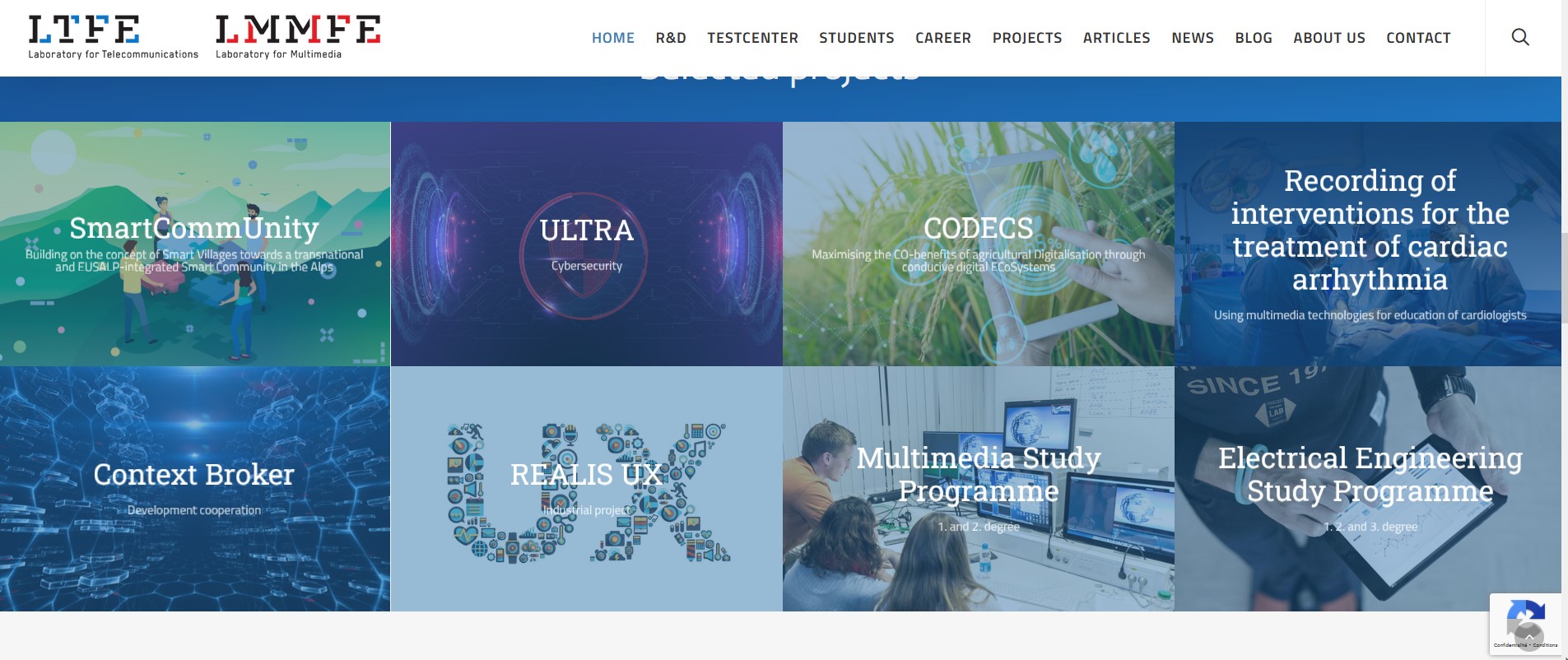
News from the 4PDIH Digital Innovation Hub
The 4PDIH Digital Innovation Hub in Slovenia was developed through the CARPE DIGEM project, in the final year of the project, it has been very active, here are
10 partners from 7 countries in peripheral, rural and emerging European regions collaborated over the four years of the CARPE DIGEM project to foster more inclusive digital innovation ecosystems and services to meet the needs of their economies and society. The COVID 19 Pandemic helped to demonstrate the value of digital services in maintaining a functioning society, education system and economy, particularly in remote regions. The project has assisted its partners to improve its 7 selected policy instruments and others to help them to become better enablers and deliverers of digital innovation.
CARPE DIGEM has explored how the partners, in close collaboration with their regional public, private and community stakeholders, can better communicate and enage their regions or territories in improving strategies for digital transformation, predicting and developing new skills and competencies for the future. This has particularly been the case with the development of European 'Digital Innovation Hubs' (such as DIHBAITUR in Mallorca, 4PDIH in Slovenia and the Smaert Isalnd Hub' in Madeita and networks of local digital/multifunctional hubs which enable local stakeholders, even in the most rural and remote (in NW Ireland and Burgundy) regions to to access digital technical and strategic support services. Secondly Short Food Supply Shains have shown one of the greatest potential for improvement through digital transformation however due to the complexity and fragmentation of sector also one of the greatest challenges.
CARPE DIGEM has helped its participants how improve or create Digital Innovation Ecosystems (DIGEMs) in regions considered to be outside the digital, economic and social core of Europe, traditional 'receivers' of innovation and change.The final conference helped to show that new strategies such as 'Digital Emancipation', where digital skills and knowledge are seen as basic citizen rights, are at the basis of 'remote' digital innovations ecosystems, as much as services to ensure SME's are aware of, understand and can use the latest 'Disruptive technologies'
CARPE DIGEM has helped to demoanstrate how we can collectively catalyse, lever, network and expand inter-regional digital eco-systems outside metropolitan Europe, to help provide universal access to the integrated digital solutions and eco-systems our citizens, public administrations and businesses need. The big question that began to dominate our discussions towards the end of the project is if the same 'peripheral' regions can ensure that the most dispruptive of new technologies: Artificial Intelligence, does not create a deeper divide, but can truly be 'tamed' to serve the needs of our societies and economies.
€1,737,910.00
Research and innovation
At the beginning of the project we aimed to design a learning and application 'Loop' at regional and inter-regional levels so that CARPE DIGEM partners could better achieve their global objective of improving regional economic and social growth trajectories through 'permanent digital evolution and innovation'.
The standard project process of partner meetings and staff/expert exchanges, was however completely disrupted, by the Covid 19 pandemic. For 2 years the partnership relied on the very digital tools it was Intending to promote, partnership meetings, workshops, seminars and conferences all took Place online. Importantly these events were now more accessible to regional stakeholders and those outside the partnership, and events such as our tourism webinar, attracted over 200§.
In 2019 the intended that the project would ensure the following results whilst this has not always been the case largely due to the exceptional circumstance; the project has adapted and worked with regional and territorial stakeholders to create results which have helped to transform there digital innovation ecosystems. some of these results can be found in the News section.
• Accessible and wide ranging knowledge of responsible policy makers and key stakeholders to support and establish sustainable DIGEMS. DIGEMS will ensure that innovative digital products and services that lead to Improvements in Growth, employment and investment and in the quality of life will be delivered.
• Significant improvement to staff, expert and stakeholder skills who integrate territorial needs and models within the wider European digital innovation networks
• Well skilled and equipped digital mediators to enable rural youth, entrepreneurs and the socially/economically excluded to fully benefit from and contribute to digital innovation
• 6 regional DIH working in network under the CARPE DIGEM approach
• 15 new companies exploiting digital tools and services in the area of: Digital education; Healthcare; Creative industry; Tourism; Energy Industrial design and Media
• 50 SMEs supported through Digital Innovation Hubs enhanced or established through projects resulting from CARPE DIGEM
• Digital Innovation projects resulting from CARPE DIGEM
The NW Region of the island of Ireland is the only functional economic region of such scale which experiences a national jurisdictional border. As such, specific arrangements through the North West Partnership Board (NWPB) have been made and a policy instrument, the North West Strategic Growth Plan.” developed. It has 3 axes:
1 Economic growth and investment;
2 Physical and environmental development;
3 Social and community cohesion and wellbeing.
The 1st axis aims “to enhance the region’s innovation ecosystem to capture jobs and enterprises in the next wave of digital innovation”
Key priorities:
1. Focus transformation efforts on five (S3) targets: Advanced manufacturing, Fintech, Life & health science, Digital & creative industries, Culture & tourism
2. Develop, deepen, leverage and apply digital research resources across S3 targets to create enterprises, investment, jobs and skills.
3. Configure base of tech parks and innovation centres into coherent networks of innovation
Improved thru measures to transfer research and development activities from 3rd level institutions to existing & new enterprises and B2B. Requiring access to latest university/3rd level-enterprise collaboration, methodologies and innovation approaches (characterised by DEI DIH service list). In addition 3rd level sector can be better grown through use of venture capital startup/accelerator funding, by gearing its activities towards transfer of research capacity into viable businesses.
The priorities for intervention is the OP Madeira 2014-2020, where IDE, IP-RAM is the Intermediate Body.
The regional action will focus on Priority axis 1 - Strengthening Research, Technological Development and Innovation which best reflects our ambitions in the CARPE DIGEM Project
Investment Priority 1.b - The principal measures of interest are:
Promoting business investment in innovation and research,
Develop links and synergies between enterprises, research centers and R & D and the higher education sector, in particular the promotion of development of products and services
Technology transfer, social innovation, and co-development and applications of public stimulation of demand, in networks, clusters and open innovation through intelligent specialization,
Support for applied technological research, Pilot lines, actions for the early validation of products,
What should be improved:
• identify more clearly the structural constraints in the area of RTDI related to DIGEMs which are barriers to reaching Europe 2020 Strategy Goals
• ensure greater clarification of actions to be undertaken to reinforce the regional DIGEM and its role in reinforcing other EPs of Regional Strategy such as green economy, culture economy, energy efficiency and renewable energy sources
• Ensure a fair balance in project prioritization criteria within the OP Madeira 2014-2020, ensuring an appropriate allocation of resources to priority areas for job creation and, for skills/infrastructure
The selected PI points at the need to co-create cross-overs between traditional areas to create innovative digital services in industry and for a smart urban-rural balanced region. To strengthen the region’s focal areas “intersections” are used, that is - areas of expertise/sector crossing other areas, leading to innovative leaps, to create potential for future investments, by promoting inter-sectoral meetings between different enterprises, organisations and expertise. An intersection that will be focused is the development of industrial technology and services, requiring new concepts and ICT solutions, offered by, operators in the digital creative sector. These types of inter-sectoral contributions will be prioritised. The region’s on-going rapid digitalisation, needs to be ‘eco-systemic’ to provide as is envisaged under EC "Digitising European Industry" Communication (COM(2016)180) that "any industry in Europe, big or small, wherever situated and in any sector can fully benefit from digital innovations to upgrade its products, improve its processes and adapt its business models to the digital change’. The existing PI lacks concretization on how to achieve this ambitions and establish such co-creative border- crossings wher innovative digital products and solutions can be developed. The PI needs to devlope strategies for learning between successful examples of boarder-crossing solutions and supporting ecosystems on regional as well as national and European level.
Axe I of the OP underlines the need to increase the research and innovation potential of the territory in order to serve the Competitiveness and employment of Burgundian (Nièvre) companies. Measure 1b's objective is to address the challenge of facilitating and encouraging the emergence of new fields of innovation. The measure underlines the need to strengthen relations with Competence Centers and (the wider digital innovation ecosystem) to amplify the dynamic of creating innovative enterprises linked to the strategic areas identified by the RIS3. This (improvement will be achieved through the improved development of the local ecosystem of innovation (detection, start-up, maturation, incubation) its better regional integration as well as the development of research; Public-private and private-private partnership in relation to National, European strategic agendas. In 2011, Burgundy was 17th of 21 French regions in regional business creation rate. BFC (and subsequently Nièvre) economic fabric is made up of small businesses with a low RDI capacity. The Policy Instrument needs to be improved in order to a) provide more strategic ‘guidance and pathways’ for business and citizens developing a support and competence ecosystem, with consistent and comprehensive access to innovation services/ and mediation-brokerage-coaching support b) enable public and private sector service deliverers to better map; plan and manage the local + regional DIGEM at intra and inter-regional level
The aim of this PI is to contribute to the improvement and recovery of the competitiveness of the Spanish economy, through the promotion of a smarter growth model, supported by the research, innovation and ICT, with special attention to the needs and potential of SMEs. Its general objectives are: (i) the development of research and innovation activities by companies, and the transfer of technology towards these; (ii) to promote a greater use of ICTs; (iii) to improve the internationalization processes of SMEs and their access to financing; (iv) to achieve an R&D expenditure 2% of GDP to strengthen the Spanish R&D&I system.
From another perspective, this PI aims to develop public-private collaboration, strengthen links between universities, technology centres and regional companies (especially SMEs), and to support collaborative structures in their respective fields.
This PI is implemented at regional and local level by the Spanish Chambers of Commerce, who acts as intermediary body (CCM in Mallorca) , and who have implemented specific sub-programs such as: Xpande (internationalization of SMEs), Xpande Digital (international digital positioning of companies in global markets), InnoCámaras (Develop innovation in SMEs), and TICCámaras (Integrate ICT's within SMEs).
The PI would significantly benefit from stronger cooperation between the public/private stakeholders of the innovation ecosystem, improved support, competence and mediation. Service offer and access
The Program’s main aim is the achievement of dynamic and competitive economy through the development of innovations, entrepreneurship, growth capacity of SME’s, energy and resource efficiency of enterprises.
The OPIK Priority Axis 1 “Technological Development and Innovation" (TO1), related to the Innovation Strategy for Smart Specialisation (RIS3), is the policy instrument that needs to be amended to successfully support smart specialisation priorities in manufacturing sectors by responding to the surge of the digital transformation. Aiming at encouraging business investment in R&D, in particular the promotion of investment in the development of products and services and technology transfer, this priority axis includes support for technological development and innovation in order to increase innovation activities of enterprises. But OPIK has not been designed or amended so far to answer the challenges of digital transformation. The already planned measures are not oriented towards harnessing SMEs to achieve the digital transformation benefits. The measures envisaging triple-helix cooperation are not intended to support and develop the digital transformation agenda from the last few years. The innovation policies need to be adapted to the new context and oriented to meet the challenge of mobilising Digital Innovation Ecosystems. There is a need for more investment in adequate competence centres and in capacity to deliver the services to implement digital transformation.
The DIGITAL SLOVENIA 2020 strategy is a commitment for a faster development of the digital society and the use of opportunities enabled by information and communication technologies and the internet for general economic and social benefits. Along with the strategies from its scope, it envisages measures to tackle the major development gaps in the field of digital society: faster development of digital entrepreneurship, increased competitiveness of the ICT industry, overall digitisation, development of digital infrastructure, construction of broadband infrastructure, strengthened cybersecurity and the development of an inclusive information society. It foresees priority investment in the digitisation of entrepreneurship, innovative data-driven economy and development, and the use of the internet and, in these frameworks, in the research and development of technologies of the internet of things, cloud computing, big data and mobile technologies.
DIGITAL SLOVENIA 2020 was published in 2016, and didn’t take into account the challenges with digitalization brought since then, but also mechanisms, such as Digital Innovation Hubs introduced to meet some of those challenges. That is why we would like to use this project to improve the policy instrument with new projects that will tackle the digital challenges.

The 4PDIH Digital Innovation Hub in Slovenia was developed through the CARPE DIGEM project, in the final year of the project, it has been very active, here are
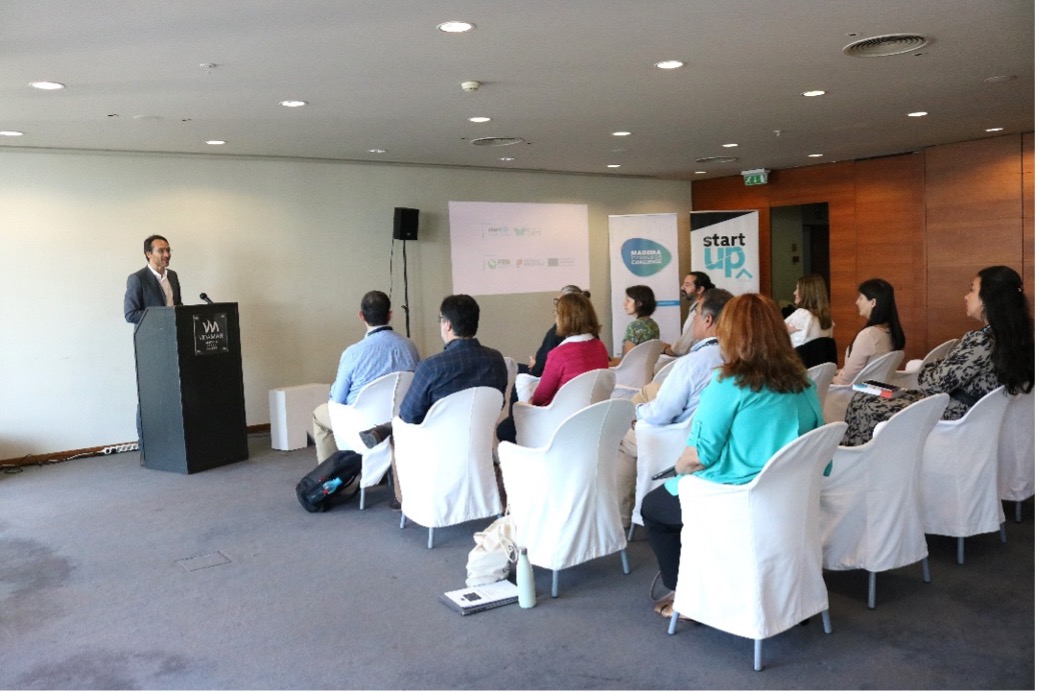
Madeira Innovation Challenge - first Smart Islands Hub activity

The role of the Living Hub for digital transformation of Region Vasterbotten and the contribution of CARPEDIGEM project.
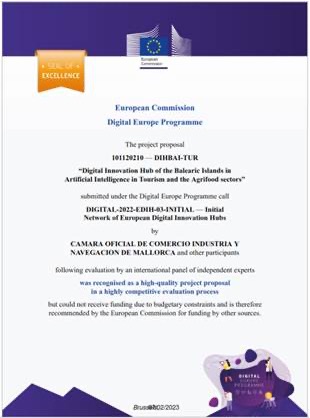
Thanks to Carpe Digem, all the entities related to digital fields came together to build the Digital Innovation hub of the Balearic Islands.
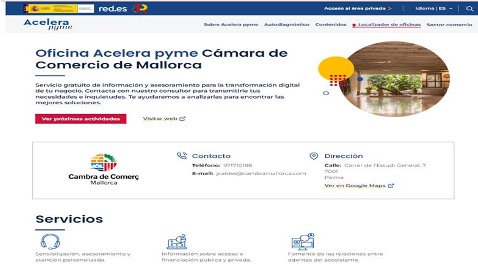
“Acelera Pyme” is a national initiative offering companies personalised digital transformation support.
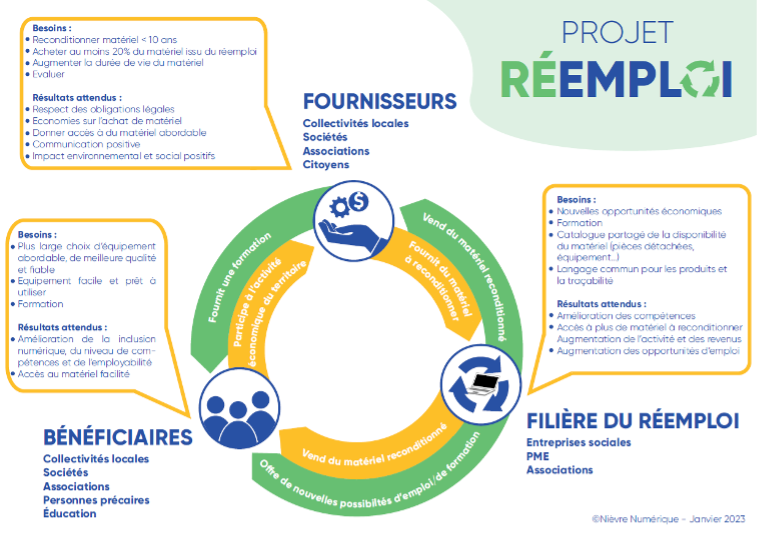
Enhancing the focus on ‘Digital Autonomy’: enabling the establishment of a local IT equipment, repair, refurbishment and upgrade system.
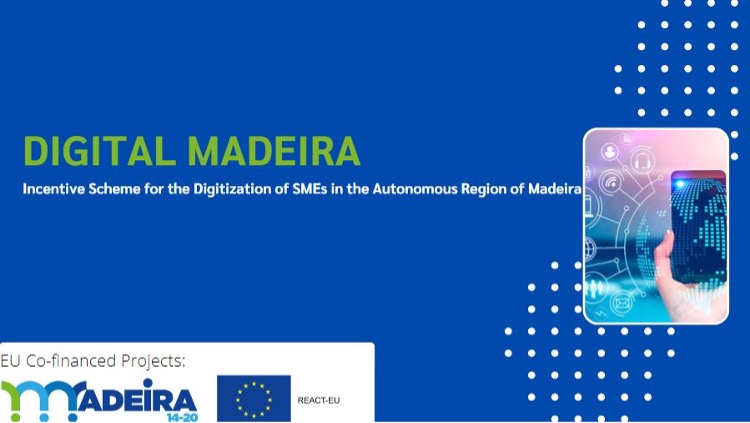
An incentive scheme for the Digitalisation of SMEs in the Autonomous Region of Madeira, promoted by the IDE, IP-RAM, in the context of the COVID-19 pandemic.
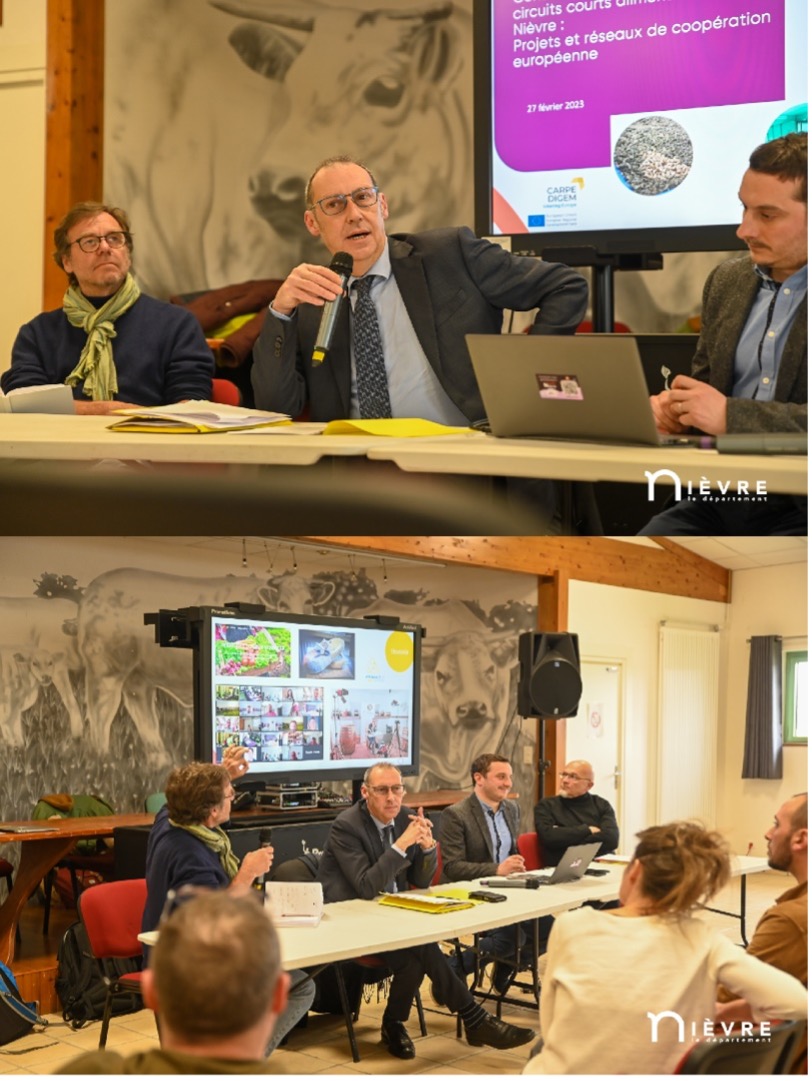
Digital tools in favor to the Nièvre’s short food supply chains
2 meetings with stakeholders have been held in Sofia and Varna to present the need for the creation of a network of digital innovation hubs.
Webinar on Smart Villages